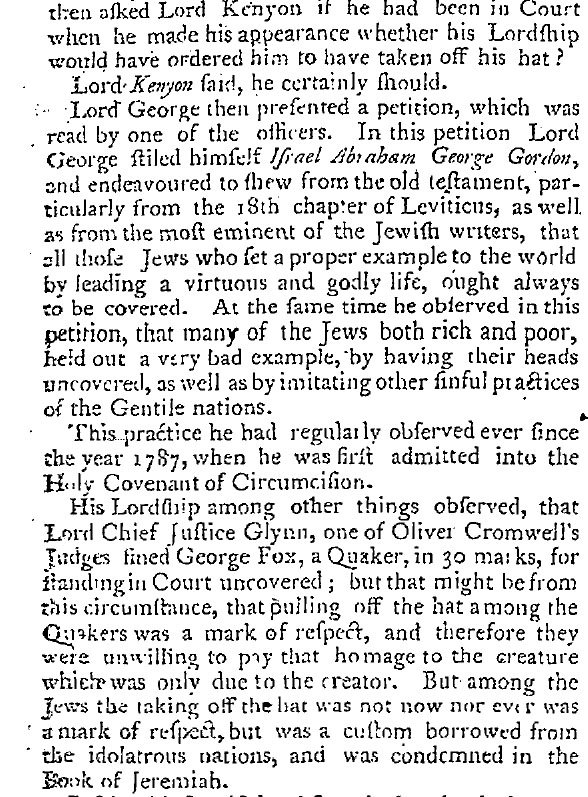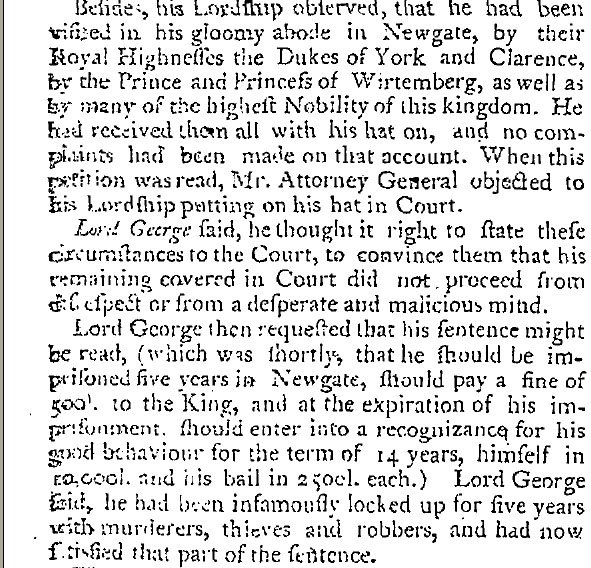"Rabbi Levi" is David Levi, a hatter by trade, and prolific author and translator. In addition to a series of polemical works against the attacks on Judaism of Joseph Priestley and Thomas Payne, he also translated the Machzor according to both the Ashkenazi and Sefaradi minhag, and a really wonderful Hebrew-English dictionary/ encylopedia; grammar called Lingua Sacra. According to this anonymous author, Levi translated works for "the benefit of Israel Abraham G___ G___," which is, of course, George Gordon. I had never heard this before and don't know if it's true, but it's interesting. (Speaking of interesting, it is said that while in prison Gordon refused to allow Jewish visitors without beards. Apparently he had become quite the kannoi. (surprising that isn't, since he was a kannoi beforehand.) Levi looked like this:

and Israel (ben) Abraham George Gordon:
 )
)In any case, later in The Regal Rambler we come upon a parodic description of the famous courtroom scene where, at a bail hearing, Gordon refused to remove his hat, had it forcibly taken off, tied a kerchief to his head and made a statement indicating that he wished the court to take notice that his hat was removed violently. Then he preceded to read a paper he'd written called "The petition of Israel Abraham George Gordon, commonly called Lord George Gordon," in which he explained that he intended no disrespect to the court by appearing with a hat, but was merely following his convictions. Furthermore, the paper contained halachic arguments for covering the head, quoting various authorities. (How I wish I could find a copy of his petition! I'd love to see what he had compiled.)
Here is how it is described in The Regal Rambler:
and here is how the more sober Times of London described it:








No comments:
Post a Comment